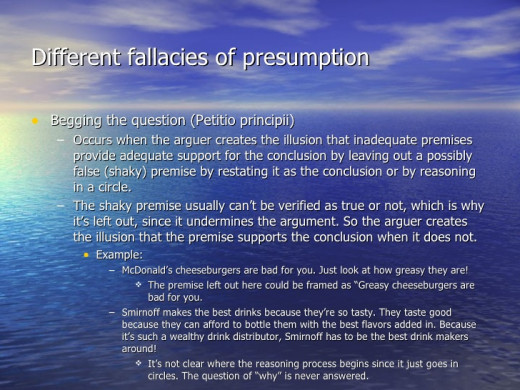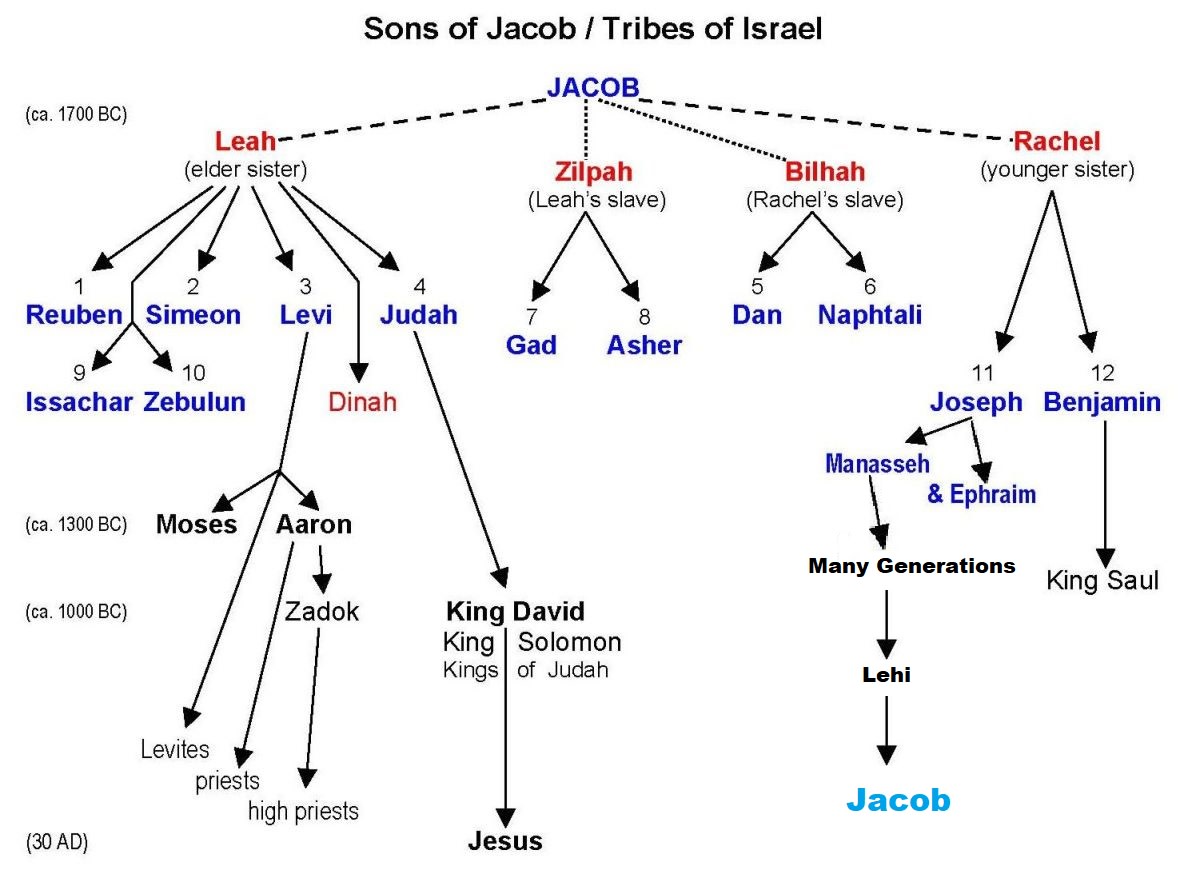4 ways in how Mormon's obey 2 Nephi 32:3
Feast upon the words of Christ

Introducing the criticism
A recent post came across my social media feed. This article seems to address the statement of how Mormon's disobey Nephi's Commandment. A very short article that seems to compare 2 Nephi 32:3 with 2 Peter 1:3-4. A short attempt to correlate the two passages of scripture as a form of criticism in addressing the title of the post. What follows after this is four questions that seem to go unanswered. Much of the commentary stems from personal experience and the perception of the writer.
The attempt here is to provide a simple and straightforward explanation of 2 Nephi 32:3 and develop a more logical and critical approach at seeing if the writer of the aforementioned blog article is correct in her conclusion. In addition, the four questions posited at the end of the article will be explored and discussed.
Before we get to those four questions, let us examine and briefly address the commentary offered by the writer at LifeAfter Ministry.
Fallacies of Presumption

Excuse of Ignorance in begging a question
The very first point of examination begins with an excuse of ignorance. Out of this excuse, we see the establishment of the writer's presumption - or begging the question:
I’m not sure if I’ve met a Mormon who believes the Bible can be trusted, or that it serves as a precious promise Peter spoke of in his epistle.
The presumption - and the question that is begged - in this statement is whether or not Latter-day Saint Christians believe and trust in what the Bible says. This is based on a conclusive statement of what the writer interprets from 2 Peter 1:3-4:
According as his divine power hath given unto us all things that pertain unto life and godliness, through the knowledge of him that hath called us to glory and virtue: 4 Whereby are given unto us exceeding great and precious promises: that by these ye might be partakers of the divine nature, having escaped the corruption that is in the world through lust.
One of the key challenges critic's of the Church of Jesus Christ of Latter-day Saints face is reviewing the context of the passage of scripture they are reciting. In fact, in the study of Hermenuetics, a Bible student is advised to first understand the immediate context.
- Who is speaking
- Who is the audience being spoken to
- What is the subject being discussed
- What is the historical setting for this discussion
- How is this applicable
- Where else in Scripture do we find the same subject
We move from the immediate context of scripture to a more general overview and context of Scripture. For the purpose of this article response, we will review the context of what Peter is discuss with his audience. This is accomplished in reviewing the next few verses of the same passage (See, vv. 5-11):
For this very reason, make every effort to supplement your faith with virtue, and virtue with knowledge, and knowledge with self-control, and self-control with steadfastness, and steadfastness with godliness, and godliness with brotherly affection, and brotherly affection with love. For if these qualities are yours and are increasing, they keep you from being ineffective or unfruitful in the knowledge of our Lord Jesus Christ. For whoever lacks these qualities is so nearsighted that he is blind, having forgotten that he was cleansed from his former sins. Therefore, brothers, be all the more diligent to confirm your calling and election, for if you practice these qualities you will never fall. For in this way there will be richly provided for you an entrance into the eternal kingdom of our Lord and Savior Jesus Christ.
The specific context of this passage refers to particular qualities Christians develop as a reality of their faith in Jesus Christ and following after Jesus Christ and his teachings. Therefore, the question the writer begs is based on a false presumption of what they have interpreted to mean trust in the Bible and the conclusion of how Mormon's, that the writer is aware of, does not trust the Bible. The reality is that Peter was not addressing scripture, he was addressing qualities of a faithful follower of Jesus Christ.
What this means is that we come to realize the false presumption and conclusion being postulated to the readers of the LifeAfter Ministries blog. Also, we will see how the qualities of a follower of Jesus Christ develop in not only reading the scriptures (Ancient and Modern); they are also developed in living out the principles and truths of what we read and take away from the scriptures.
Liken the scriptures unto yourself

Excuse in accusation and denial regarding presumption
The next point of criticism rests on the following statement the author makes:
When I left Mormonism I didn’t know how to use God’s word as a daily blueprint for my daily life, and only referred to it if I felt ‘in the mood’ to read the first chapter, or so of Matthew. The concept of applying what I had read into my daily life was a long shot at best. I’ve learned over the years my experience was unfortunately, pretty typical of most Mormons.
There are three points within this statement:
- Admission of one's lack in daily scripture reading and studying
- Lack of applying and liken the scriptures unto oneself in their life
- Presumptive conclusion based on blame and denial
Regarding the first point of the statement, the perception of the writer is already established: Mormon's do not trust the bible, therefore I was taught not to trust the Bible. This type of reflection is a form of blame and denial. Here is how.
Denial in that Latter-day Saints actually do trust the Bible as the word of God. Many modern Evangelicals are hung up on the article of faith where it states:
We believe in the Bible as the word of God as far as it is translated correctly.
For the writer, because of this, the perception is that the Bible is not to be trusted at all and therefore is not worth any regard to daily living and spiritual growth. Because of this denial, there is a component of blame within the statement only referred to it if I felt in the mood to read the first chapter, or so of Matthew. The blame actually rests upon, from what we read in this admission, the writer and no one else. Typically, when individuals are in denial and resistant, there is a tendency to blame external sources for the problematic issues that at conflict within the individual themselves.
Going back to the full context of 2 Peter 1:3-11, we read how a person becomes unfruitful in their walk and faith by not applying the principle truths in their own lives. This comes to the next point of the admission and presumptive conclusion. The admission is that the writer failed to apply what is read and contained in the scriptures (Bible, Book of Mormon, Doctrine and Covenants, and the Pearl of Great Price) as well as the teachings of modern prophets and wise counsel that bring us to a greater understanding and relationship of Jesus Christ.
The failing of applying the principle truths of "God's Word" is not actually indicative of the Mormon Experience. It is actually the opposite. Much like strong and faithful Evangelical, Protestant, Roman Catholics, Greek Orthodox and other identified Christians - Latter-day Saints are not only taught, there are many who abide by and live out the principle truths of the Gospel Message. In fact, many individuals (inside and outside of the Church) grow in the very qualities Peter speaks of in his epistle. Reason for this growth in their spiritual lives and in their faith is how they liken the scriptures in their lives each and every day. In essence, they are constantly feasting upon the words of Christ.
Therefore, the presumptive conclusion is that this experience might be something among some Latter-day Saint Christians, it is also an experience among many well to do Christians outside of the Mormon faith. A lack in reading the scriptures daily, praying daily and living out those principles in order to allow themselves to be transformed by the renewing of their mind on the truths of the Gospel (see, Romans 12:1-2).
Understanding the Importance of Scripture Study by David A Bednar
Begging the question through presumptive inquiry
The last point of criticism that is brought up is in this statement:
As you might expect, our concerns with the passage in 2nd Nephi are many so let’s take a look at a few things!
The writer presumes the reader has come to the same conclusion they have already established. With this presumptive conclusion, another assumption is posited in the relation of concern regarding 2 Nephi 32:3. What, then, follows are four questions that are based on the overall context of the article. Again, the perception is that of readers coming to the same conclusion the writer has already drawn upon. Let us look at each question in its own right and provide additional information to see whether they are valid concerns that lead to a valid and logical conclusion - not a wishful conclusion that is based on a false presumption.
1. How do you feast upon the word's of Christ when you don't trust his word?
The first question is a false conclusion and the overall fallacy of begging the question. Here, going back to what is already established, the conclusion rests upon the idea that Latter-day Saints, based on the writers own personal experience and admission, typically do not trust the Bible. In this context, the meaning is more specific in that Latter-day Christians are not able to trust the Bible in how it relates to our lives and is relegated to a secondary source of scripture.
Reflecting upon this, another scripture, within the Book of Mormon, not only mirrors 2 Nephi 32:3, it expounds upon what it means to feast upon the words of Christ and collaborates what Peter related to his audience in his epistle. We read:
Wherefore, ye must press forward with steadfastness in Christ, having a perfect brightness of hope, and a love of God and of all men. Wherefore, if ye shall press forward, feasting upon the word of Christ, and endure to the end, behold, thus saith the Father: Ye shall have eternal life. (See 2 Nephi 31:20)
What we read here is complimentary to what Peter wrote in his epistles. It is complimentary to what is related in the very next chapter of 2 Nephi as pertaining to what it means to feast upon the words of Christ. Even more interesting, when exploring the context of 2 Nephi 31, we discover that this passage of scripture was a revelation of the baptism of Jesus Christ. Not only are we called to engage in the ordinance of Baptism, we are to, as Paul himself explicitly teaches in Romans 6, take up our newness of life and put to death our old selves and live unto Christ.
Here, the question is not whether or not the scriptures can be trusted. The question becomes how do we obtain a spirit of endurance in order to receive our eternal crown of righteousness and reward? Jesus himself answers this question to John at the isle of Patmos. We read in Revelation 3:20-21:
Behold, I stand at the door and knock. If anyone hears my voice and opens the door, I will come in to him and eat with him, and he with me. The one who conquers, I will grant him to sit with me on my throne, as I also conquered and sat down with my Father on his throne.
We shall inherit eternal life and sit with Christ as Christ sits with his Father on a throne. This is only accomplished through our ability to conquer and endure this mortal existence. How is this accomplished? Christ himself, in replying to Satan's temptation to turn stones into bread states:
But he answered, “It is written, “‘Man shall not live by bread alone, but by every word that comes from the mouth of God.’”
What are the words that come from the mouth of God? Ancient and Modern Scriptures that the LDS Church refers to as the standard works of the Church of Jesus Christ of Latter-day Saints. In addition to this, messages at each general conference, through personal scripture study and personal revelation. Daily prayer along with scripture study and reflecting on teachings each and every Sunday.
Latter-day Saints trust the word of God and liken those teachings in their lives and strive to become more and more like Christ each and every day.
Feast upon the words of Christ and eternal salvation

2.How does someone know how to apply what you’ve read when no instructions are provided on how to do so?
As mentioned before in this article response. Latter-day Saints are counseled to liken the scriptures. This comes from 1 Nephi 19:23. The important principle is contained in the latter portion of this passage of scripture:
for I did liken all scriptures unto us, that it might be for our profit and learning.
This means that we are to engage in applying the principles of scriptures in our daily lives:
To liken the scriptures means to understand how the principles and doctrines apply to one’s own life and to use them to become more like the Savior” (Teaching the Gospel: A Handbook, 33–34)
Latter-day Saint Christians, because of the principle to not only study the scriptures, are asked to apply what they study in their own lives.
Liken the scriptures in our lives
3.Why was Nephi using the Greek word ‘Christ’ circa BC 400? Jesus hadn’t even been born yet!
One of the other logical fallacies one sees is the red herring fallacy. This fallacy is utilized to distract from the subject of discussion. It shifts the focus away from the intended topic and introduces a different topic of discussion. The writer does this by asking a question concerning the word "Christ" in the passage of 2 Nephi 32:3.
Actually Christ is an English word, not Greek. The Greek form of Christ is christos. The problem with this red herring, along with begging the question presumption is a lack of understanding linguistics. A more scholarly linguistic study of the Greek word is evident within the Septuagint (LXX). The Greek form of this word merely means "Anointed" and is the transliteration of the Hebrew "mashiach". The LXX was translated after the Hellenization of the Ancient Jews and the Hebrew scriptures were translated into Greek. This was long before the New Testament and during the time of Alexander the Great.
Another component of this is that Nephi wrote this as a revelator truth regarding the Savior of the World. In this revelation, Nephi saw the baptism of Christ and the purpose and its meaning. Baptism by immersion actually existed among the Ancient Jews as a purification ceremony. In fact, we read in the gospels how John the Baptist was baptizing people in the Jordan River, Christ coming to him and being baptized himself (as a fulfillment of Nephi's revelation).
The third, and final, component of this rests on the lack of understanding that the Book of Mormon is a compilation of one man - Mormon and Moroni. They were given charge of keeping the records that have been handed down from generation to generation. Both men (who appear in the later part of the Book of Mormon) provided significant information within the compilation that is relevant for us today. Unlike the Bible, being a collection of books, the Book of Mormon was not written for an Ancient audience. The Book of Mormon was written for a modern audience. With this in mind, as Joseph Smith translated the single record from the brass plates, he utilized known English words that were recognizable. Christ being one of them.
4.Why haven’t Mormons heeded the words of Christ, i.e. marriage and racism?
This final question - again, not having anything to do with the actual topic presented by the writer at LifeAfter Ministry - is a secondary red herring and begging the question presumption. The writer's assumption is summed up in this accusatory charge. Accusatory because it is not merely a question, it is a statement conformed in a question. The writer never addressed this concern or question. The concern raised in the overall article focused on how Mormon's do not heed the counsel of 2 Nephi and feast on the words of Christ.
However, the hidden assumption here is that because Mormon's are not able to trust the word of God (the Bible) and understand how to apply it in their lives, the presumption is that Mormon's are ever against the words of Christ.
Fortunately, the objective of this response article is to show the false presumption and false perception established by the author. Latter-day Saints actually heed the words of Christ through daily scripture study and immersing themselves in likening the scriptures unto themselves. Marriage, Latter-day Saints are taught the sacred institution of Marriage. Racism, Latter-day Saints are taught to love their fellow man without judgment, criticism or biased disposition.
Finally, this very same question can be flipped around and presented to so-called Evangelical Christians regarding marriage and racism in relation to heeding the words of Christ. More specifically, heeding the words of Christ in their false condemnation and attack on the Mormon church.
The reality is, the article presented at the outset of this response is exposed as a faulty conclusion, based on wishful presumptions and conformed to deceive individuals into believing false information.
What are your thoughts on the article and the response?
Does the article "Mormon's Disobey Nephi's Commandment" falsely present the information based on faulty presumption and wishful conclusion?
Engaging in the discussion
While there are different perceptions and understandings. Let us establish some clear rules for commentary and discussion:
- Short one word answers/responses will not be allowed. Please be thorough in your thought. If you disagree, please support your reason for it, show through logical and critical thinking how and where there is an error. Answers like "you are wrong." or "typical." is not engaging.
- While links are allowed to support your perception, keep them at a certain limit and no single link posting will be allowed as a response. Meaning, don't comment with a link to some blog article or other commonly known resource. Use your own prowess of presenting your own perspective and thought.
- Name calling is not conducive to a healthy discussion. If you disagree, state your reason, support it (as mentioned above).
Remember, we are here to learn from one another and come to a greater understanding of certain issues.







